
JOURNAL OF AUTOIMMUNITY
Scope & Guideline
Innovating Insights into Autoimmune Health
Introduction
Aims and Scopes
- Immunological Mechanisms of Autoimmunity:
Investigates the underlying immune mechanisms that drive autoimmune diseases, including the role of various immune cells, cytokines, and genetic factors. - Therapeutic Approaches and Innovations:
Explores novel therapeutic strategies for managing autoimmune diseases, including biologics, small molecules, and cellular therapies, with an emphasis on efficacy and safety. - Epidemiology and Risk Factors:
Focuses on the epidemiological aspects of autoimmune diseases, identifying risk factors, genetic predispositions, and environmental triggers that contribute to disease onset and progression. - Translational Research and Clinical Applications:
Bridges laboratory research with clinical practice, emphasizing the translation of findings into therapeutic options and improved patient care. - Impact of Microbiome on Autoimmunity:
Examines the interactions between the gut microbiome and autoimmune diseases, highlighting the role of microbial dysbiosis in disease pathogenesis and potential therapeutic interventions.
Trending and Emerging
- Role of the Gut Microbiome:
An increasing number of studies are exploring the relationship between gut microbiota and autoimmune diseases, highlighting the microbiome's influence on immune regulation and disease pathogenesis. - Impact of COVID-19 on Autoimmunity:
Research examining the effects of COVID-19 on autoimmune diseases, including vaccine responses and disease flares, has surged, reflecting the pandemic's significant impact on immunology. - Single-Cell and Multi-Omics Approaches:
There is a growing trend towards employing single-cell RNA sequencing and multi-omics methodologies to unravel the complexities of autoimmune diseases at a cellular and molecular level. - Personalized Medicine in Autoimmunity:
The journal is increasingly publishing studies focused on personalized medicine approaches, tailoring treatments based on individual patient profiles and genetic backgrounds. - Immunotherapy and Novel Drug Discoveries:
Research on innovative immunotherapeutic strategies, including engineered T cells and novel biologics, is gaining momentum, emphasizing the need for new treatment modalities in autoimmune diseases.
Declining or Waning
- Historical Perspectives on Autoimmune Diseases:
Research focusing on historical views and early studies of autoimmune diseases seems to have decreased, reflecting a shift towards contemporary approaches and technologies. - Traditional Biomarker Studies:
There is a waning interest in solely traditional biomarker studies, as the field moves towards integrated multi-omics approaches that provide a more comprehensive understanding of disease mechanisms. - Autoimmunity in Rare Diseases:
Papers specifically addressing rare autoimmune diseases may be declining, as the journal increasingly emphasizes more prevalent conditions and those with significant public health impact. - Basic Science without Clinical Relevance:
The focus on basic science research that lacks direct clinical implications appears to be diminishing, with a stronger emphasis on studies that translate findings into clinical practice.
Similar Journals
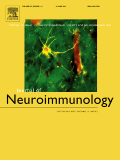
JOURNAL OF NEUROIMMUNOLOGY
Connecting the Dots Between Brain and ImmunityJOURNAL OF NEUROIMMUNOLOGY is a premier academic journal dedicated to exploring the intricate interactions between the nervous and immune systems. Published by Elsevier, this journal has been at the forefront of neuroimmunology research since its inception in 1981 and continues to disseminate high-quality, peer-reviewed articles that are critical for advancing understanding in the fields of immunology, neurology, and neuroscience. With an impressive impact factor and a Q2 ranking in multiple categories including Neurology and Immunology and Allergy, it serves as an essential resource for researchers, clinicians, and students alike who seek to deepen their knowledge of the neuroimmune landscape. The journal’s rigorous selection process ensures that only the most relevant and impactful research is published, fostering a vibrant academic discourse and facilitating knowledge transfer among professionals in the field. Although the journal is not open access, its contributions to both therapeutic insights and foundational research make it a valuable asset for those committed to the advancement of neuroimmunological science.

Journal of Translational Medicine
Pioneering the Path from Lab to Life.Journal of Translational Medicine, published by BMC in the United Kingdom, stands at the forefront of biomedical research, bridging the gap between laboratory discoveries and clinical applications. Established in 2003 as an Open Access journal, it has garnered significant recognition, achieving a Q1 quartile ranking in both Biochemistry, Genetics and Molecular Biology and Medicine categories as of 2023. With an impressive Scopus rank of 38 out of 636 in General Medicine and 33 out of 221 in General Biochemistry, Genetics and Molecular Biology, the journal is committed to disseminating high-quality, peer-reviewed research that impacts healthcare and informs clinical practices. By facilitating free access to groundbreaking studies, the Journal of Translational Medicine aims to enhance collaboration among researchers, professionals, and students in the scientific community, fostering advancements in translational research well into the future.
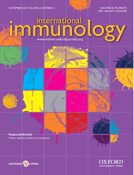
INTERNATIONAL IMMUNOLOGY
Transforming Knowledge into Therapeutic Solutions in Immunology.INTERNATIONAL IMMUNOLOGY, published by OXFORD UNIV PRESS, stands out as a premier journal in the field of immunology, providing a vital platform for disseminating groundbreaking research and innovative developments within the discipline. With an impressive Q1 ranking in Immunology and Allergy, as well as in Medicine (miscellaneous), it consistently showcases high-impact studies that contribute to the advancement of immunological knowledge. The journal spans over three decades, from its inception in 1989 to its ongoing contributions as of 2024, thus solidifying its reputation in the scientific community. Researchers, professionals, and students will find valuable articles that delve into the complexities of immune responses, therapeutic interventions, and emerging immunological paradigms, ensuring INTERNATIONAL IMMUNOLOGY remains at the forefront of knowledge in the life sciences.

ANAIS BRASILEIROS DE DERMATOLOGIA
Empowering the Dermatology Community Through Research.ANAIS BRASILEIROS DE DERMATOLOGIA is a prestigious academic journal published by Elsevier Science Inc, specializing in the dynamic field of dermatology. With its Open Access model established in 2002, this journal ensures wide dissemination of research findings and facilitates collaboration within the dermatological community. Hailing from Brazil, it provides a platform for innovative research from both local and international contributors, spanning from its inception in 1963 to the current year, 2024. The journal positions itself as a vital resource in the dermatology sphere, currently ranked in the Q3 category for dermatology and holding a notable rank of 71 out of 142 in the Scopus rankings, placing it in the 50th percentile for its field. With a commitment to advancing knowledge and practice in dermatology, ANAIS BRASILEIROS DE DERMATOLOGIA is an essential read for researchers, professionals, and students eager to explore contemporary advancements and clinical practices.
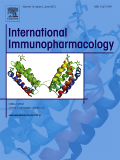
International Immunopharmacology
Connecting Researchers to the Future of Immune System ScienceInternational Immunopharmacology, published by Elsevier, stands as a prominent journal within the disciplines of immunology and pharmacology. With an ISSN of 1567-5769 and an E-ISSN of 1878-1705, this esteemed journal is based in the Netherlands and features a robust commitment to disseminating high-quality research from its inception in 2001 through 2024. The journal has achieved impressive rankings, securing a Q1 category in Pharmacology and Q2 in both Immunology and Immunology and Allergy as of 2023. With its strategic focus on bridging the gap between immunology and pharmacological applications, International Immunopharmacology attracts a diverse readership, including researchers, healthcare professionals, and students interested in the latest advancements in therapeutic agents and immune system modulation. Furthermore, it offers an open access option, enhancing the accessibility and reach of its invaluable content. As a pivotal resource in the field, this journal not only facilitates the exchange of innovative ideas but also fosters a deeper understanding of the complexities of immunopharmacology in today’s research landscape.

INFLAMMATION
Transforming Understanding of Inflammatory MechanismsINFLAMMATION is a prestigious journal dedicated to advancing our understanding of inflammatory processes in health and disease, published by Springer/Plenum Publishers. Established in 1975, it has transitioned through significant developments in the field, with converged publication years extending from 1975 to 2005 and again from 2007 to 2024. Notably, the journal holds a commendable impact factor within its categories, ranking in Q2 for both Immunology and Immunology and Allergy in 2023, and achieving high Scopus rankings, placing it in the 77th and 75th percentiles respectively. Designed to disseminate cutting-edge research, the journal invites original research articles, reviews, and clinical studies that explore various aspects of inflammation, making it a crucial resource for researchers, healthcare professionals, and students aiming to stay abreast of the latest advancements and insights in the field.
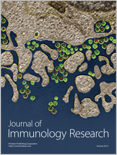
Journal of Immunology Research
Unlocking Immune Mechanisms: Where Discovery Meets AccessibilityJournal of Immunology Research, published by HINDAWI LTD, stands as a pivotal open-access journal in the realm of immunology, with a particular emphasis on advancing knowledge in both fundamental and applied aspects of the field. Since its inception in 1990, the journal has committed to the dissemination of high-quality research, earning a respectable impact factor that reflects its significance. Based in Egypt, it provides a platform for researchers from around the world, showcasing innovative studies and reviews that contribute to the understanding of immune system mechanisms. Its 2023 rankings place it in the Q2 category for Immunology and Allergy, and Q1 in the broader category of Medicine (miscellaneous), indicating a strong reputation among its peers. Through its open-access model, the journal promotes wide accessibility of cutting-edge research, catering to researchers, professionals, and students alike. With ambitions that converge through 2024, the Journal of Immunology Research continues to be an essential resource for those seeking to explore the forefront of immunological science.
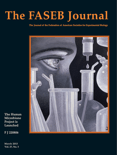
FASEB JOURNAL
Innovating Knowledge in Life Sciences and BeyondFASEB JOURNAL, published by Wiley, stands as a leading interdisciplinary platform in the realm of biological sciences, prominently featured in the United States. With an impressive 2023 impact factor placing it in the Q1 category across various fields including Biochemistry, Biotechnology, Genetics, Molecular Biology, and Medicine (miscellaneous), the journal is recognized for its substantial contribution to advancing knowledge and innovation. It serves as a vital resource for researchers, professionals, and students alike, providing high-quality, peer-reviewed articles that explore the molecular and cellular mechanisms underlying health and disease. The FASEB JOURNAL not only emphasizes accessible scientific communication but also fosters collaboration within these dynamic fields, making it an essential publication for anyone engaged in cutting-edge life sciences research. To explore more about the journal's offerings and access its vast repository of scholarly articles, visit their official page.
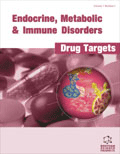
Endocrine Metabolic & Immune Disorders-Drug Targets
Connecting Research to Real-World ImpactEndocrine Metabolic & Immune Disorders-Drug Targets, published by Bentham Science Publishers, is a premier journal focused on the intricate interplay between endocrinology, metabolism, and immune response, with a particular emphasis on drug targets. Established in 2006 and set to continue its influence until 2024, this journal serves as a crucial platform for researchers and professionals to communicate significant advances in understanding metabolic and immune disorders, making it an invaluable resource in the realms of Endocrinology and Immunology. With an impact factor positioned within the Q3 category for both Endocrinology, Diabetes and Metabolism, and Immunology and Allergy as of 2023, the journal stands at the crossroads of critical research and clinical application, facilitating ongoing dialogue among the scientific community. Although currently not open access, its dedication to high-quality peer-reviewed articles ensures that cutting-edge research remains accessible to those invested in enhancing therapeutic strategies. For researchers and practitioners alike, Endocrine Metabolic & Immune Disorders-Drug Targets is an essential conduit for the latest findings that can influence treatment paradigms and bolster the understanding of complex biological systems.

Immunity
Illuminating the path to understanding immune mechanisms.Immunity is a premier journal published by CELL PRESS that has positioned itself at the forefront of immunological research since its inception in 1994. With its ISSN 1074-7613 and E-ISSN 1097-4180, this prestigious journal is recognized for its significant contribution to the fields of Immunology, Allergy, and Infectious Diseases, consistently achieving a Q1 ranking in these categories as per 2023 metrics. The journal is highly esteemed within the academic community, holding impressive Scopus rankings—4th out of 344 in Infectious Diseases and 3rd in both Immunology and Immunology and Allergy—placing it in the 98th percentile. Although not an Open Access journal, it provides critical insights and research developments that empower researchers, healthcare professionals, and students alike. With a commitment to advancing scientific knowledge, Immunity is crucial for those interested in understanding immune responses and their implications for health and disease.